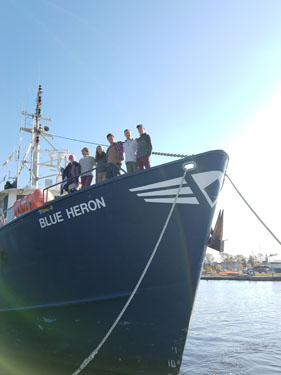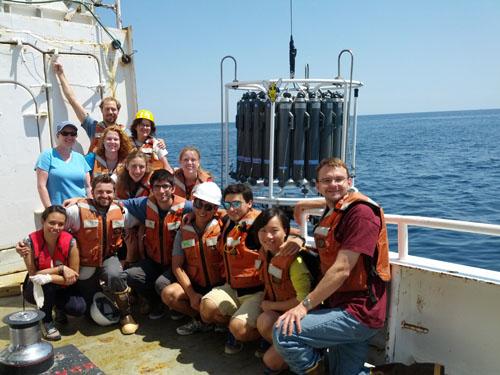Department
Undergraduate Research
Inspired by the abundance of meaningful research opportunities available to undergraduate students at the University of Rochester, I tried to assemble a comprehensive research experience in the ocean sciences for undergraduates. The experience is meant to give students (1) the freedom to develop their own interests, ideas, hypotheses to test, and experimental plan to test their hypotheses, (2) the opportunity to carry out their newly designed research in the field and lab, and (3) an environment where they can analyze the data they personally collected and prepare it into formal presentations and publications. The model I have developed for this research experience begins in the classroom during the spring semester. The students meet in a classroom setting where we discuss the objectives of an already funded oceanographic research expedition. I then work with the students to develop their own interests that are unique from those already funded, but still complement the planned research. I teach the students how to write a formal research proposal and the students formulate their hypotheses and experiments into an NSF-style proposal. At the conclusion of this semester, the students conduct a mock panel review of their proposals. During the summer, we enact our research plans on an oceanographic expedition. During the summer of 2014, we spent 8 days on the R/V Endeavor investigating methane seeps in the northern US Atlantic margin; during the summer and fall of 2016, we researched methane dynamics in Lake Ontario and Lake Superior on the R/V Blue Heron and R/V Madtom; during the summer of 2017, we spend 14 days on the R/V Hugh R. Sharp along the middle US Atlantic Margin. Finally, during the fall semester, we reconvene as a class and analyze the data we collected, run any remaining experiments, learn how to write a technical publication, and present our findings in both orals and written publications.
The undergraduate students that I have had the pleasure to work with have massively exceeded my expectations. They are independent, free thinking, hardworking, highly motivated, and simply a joy to be around.
Scientific Publictions with Undergraduates as Lead Authors (bold and asterisk indicates undergraduate student authors; bold indicates graduate student authors)
Weinstein, A.*, L. Navarrete*, C. Ruppel, T. C. Weber, M. Leonte, M. Y. Kellermann, E. C. Arrington, D. L. Valentine, M. I. Scranton, and J. D. Kessler (2016), Determining the flux of methane into Hudson Canyon at the edge of methane clathrate hydrate stability, Geochem. Geophys. Geosyst., 17, doi:10.1002/2016GC006421.


Tile Image
Order Number: 2
























